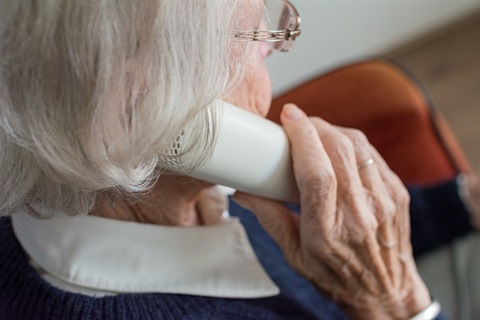Council telephone surveys
Published on 09 February 2022

Monash Council conducts research on a wide range of topics.
Social research via random telephone interviewing helps us to obtain the views of a wide range of people across the municipality.
Some of the telephone surveys we conducted in the past 12 months are:
- Community Satisfaction Survey
- CCTV in Oakleigh Activity Centre
- Age Friendly Monash
- Smoke Free Areas Trading Policy and Local Law
Current surveys
From 9-23 February 2022, a phone survey will be conducted on behalf of Council in relation to the bin collection changes. We are aware that there are also scam calls taking place.
The following details will assist in identifying whether the call was our approved phone survey or a potential scam:
- They will never ask for you by name (they don’t have access to your name)
- They will always identify the company they are calling from and introduce themselves by name
- They will always say how long they expect the survey to take
- Calls will come from a number with the prefix: (03) 9977 …… (they will never call from a mobile number)
- Residents will be asked if they are happy to participate in the survey
- They will never ask for your address, date of birth, names of family members or pet names, or any financial information
- They may ask for your name at the end of the survey, for the purposes of re-contacting you to validate the survey actually took place; this will be clearly explained to you during the phone call and is optional – you can choose to not provide your name.
How do I know if it is not a scam?
1. Monash Council only uses market research companies that are registered as a member with the Australian Data and Insights Association and bound by the ADIA Privacy (Market and Social Research Code) 2021 and the industry Code of Professional Behaviour (ADIA was formerly The Association of Market and Social Research Organisations or AMSRO).
2. The caller will always give their name and the name of the market research company they are calling from first. They will then explain they are conducting a survey on behalf of the City of Monash. They will never say they are calling from Monash Council. A genuine telephone survey will commence something like this:
Good morning/afternoon/evening. My name is [INTERVIEWER NAME] from [COMPANY NAME]. We are conducting a short survey on issues on behalf of the City of Monash and would like to include your opinions.
3. Research on behalf of Monash Council is always anonymous and confidential. Our researchers will never ask for personal information such as name, address, telephone number, place of employment, or financial details. However, they will ask for demographic information such as age, gender and postcode or suburb.
4. Most of our telephone survey interviewers will also say: ‘During the course of this interview this call may be monitored, recorded or observed for quality control purposes’.
If in doubt about the person calling you, do not respond. When we undertake surveys, information is usually promoted through our website or enewsletters and publications.
I would like to participate in the survey but how can I check it is genuine first?
1. Ask for a call-back appointment and get the name and ADIA member listing of the company
2. Call Monash Council for verification on 9518 3555 or check out the company on the ADIA website.
How can I avoid receiving scam survey calls?
Enrol on the Do Not Call Register. This will help prevent telemarketing calls, but does not exclude registered social and market research organisations, who are permitted to call numbers that are on the Do Not Call register.
How do I report it if I receive a scam survey call?
You can report scams to Scamwatch
I agreed to take a survey, but the telephone interviewer rejected me
Our researchers are asked to meet quotas from certain age groups and other demographic characteristics to ensure a representative sample of the population. If your participation was not required, it is because they have already filled the quota for your age group or gender.
Younger people are more difficult to engage than older people, and men are more difficult to engage than women on telephone surveys.
This is why interviewers will often ask to speak to the youngest adult or the youngest man in the household.